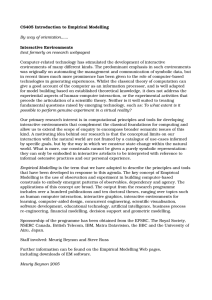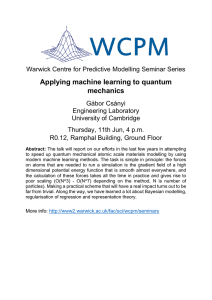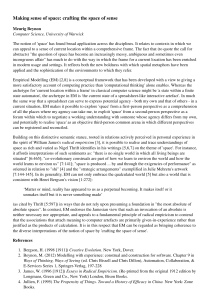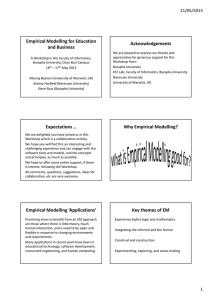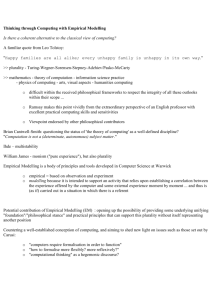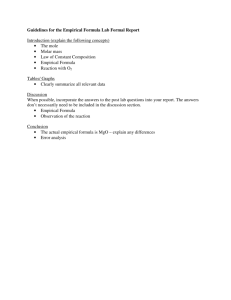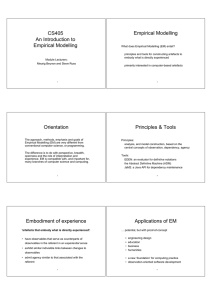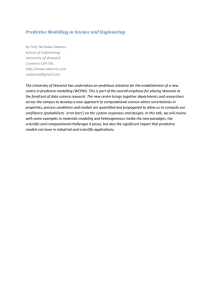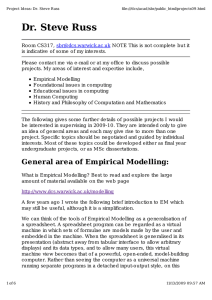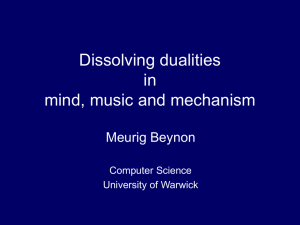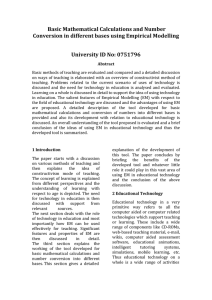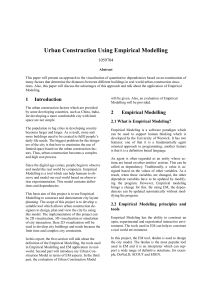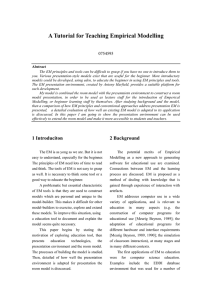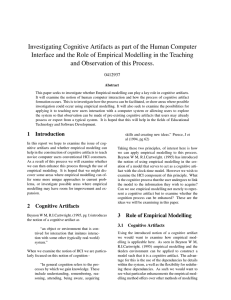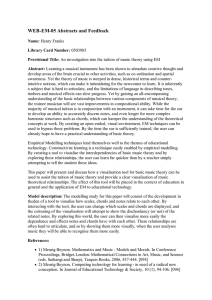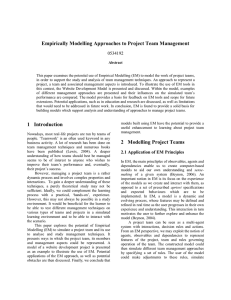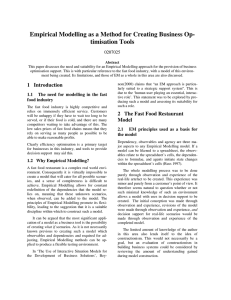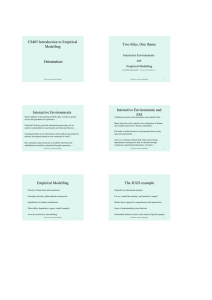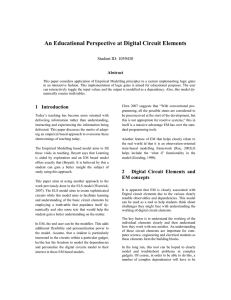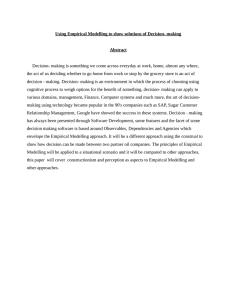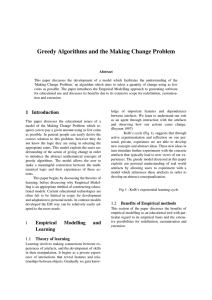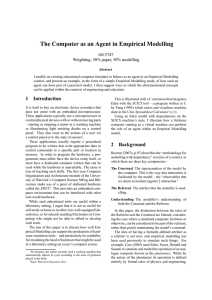Philosophy meets Computer Science – Interdisziplinäres Kolloquium.
advertisement
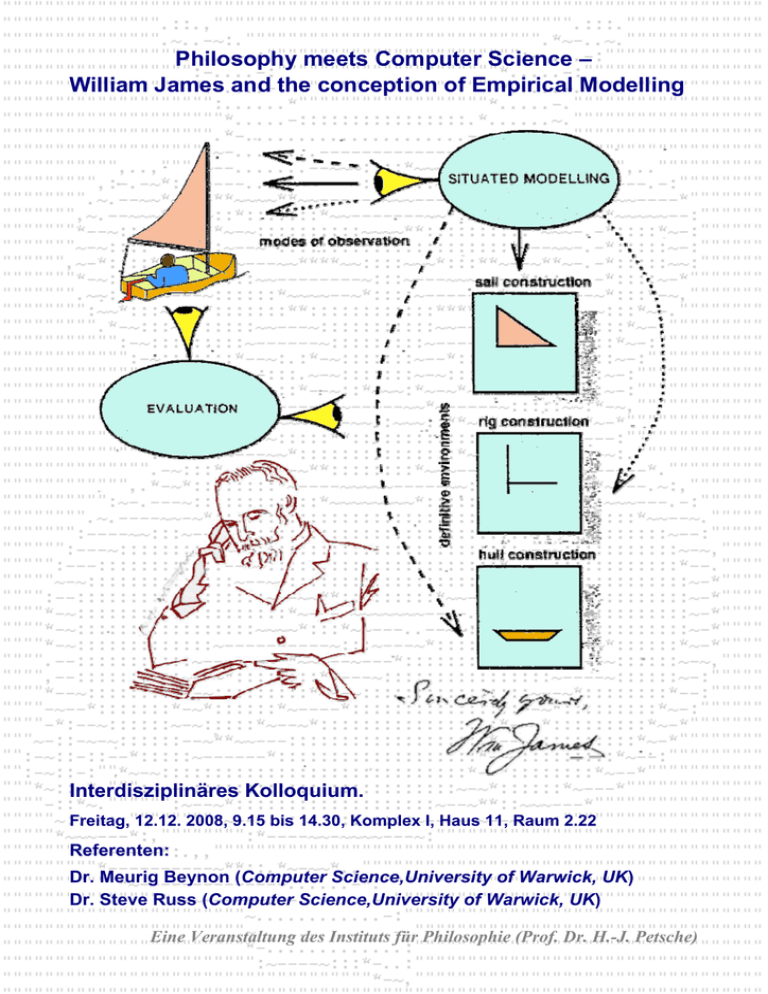
Philosophy meets Computer Science – William James and the conception of Empirical Modelling Interdisziplinäres Kolloquium. Freitag, 12.12. 2008, 9.15 bis 14.30, Komplex I, Haus 11, Raum 2.22 Referenten: Dr. Meurig Beynon (Computer Science,University of Warwick, UK) Dr. Steve Russ (Computer Science,University of Warwick, UK) Eine Veranstaltung des Instituts für Philosophie (Prof. Dr. H.-J. Petsche) Abstract Radical Empiricism and Empirical Modelling Dr Meurig Beynon and Dr Steve Russ, Computer Science, University of Warwick, UK William James's philosophic stance of Radical Empiricism (RE) is topical for modern-day computing in two complementary respects. On the one hand, RE offers an alternative ontological framework within which to address aspects of experience that are peripheral to classical computer science but central to contemporary computing practice. On the other hand, modern computing technology makes it possible - and indeed in some contexts necessary - to invest unprecedented authority in modes of representation and ways of knowing that transcend the traditional interpretations of language. These two perspectives, to be explored with particular attention to the links between RE and Empirical Modelling (EM), will be the respective subjects of our two presentations. Major issues for Computer Science surround the thinking that precedes a computational model, and the physical realisations that shadow its conception, design and use. The philosophical frameworks that are best matched with the traditional view of computing, as rooted in Turing's account of computation, deal most effectively with what can be expressed formally and reflects well-rehearsed processes enacted by reliable agents. James's orientation towards the relationship between the formal and the informal is the basis for a shift in perspective more radical than that associated with orthodox critiques of the rationalistic accounts of computing. It is an orientation that is well-aligned to the principles and practice of Empirical Modelling, as developed by Beynon, Russ and their collaborators in Computer Science at the University of Warwick. Our first presentation will discuss some respects in which James's outlook is helpful in thinking about the character and construction of EM models. James's philosophical writings have not gained the same degree of respect that has been accorded to his fundamental work on the principles of psychology. The Jamesian scholar Marianne Janack attributes this in part to the fact that his thinking does not respect what many philosophers consider to be a sharp epistemological distinction between philosophical and psychological concerns. Other philosophical commentators express concern at the way in which James distrusts words, yet is obliged to frame his thinking about the notion of 'pure experience' in language. This potentially exposes James to the charge of trying to express in his writing what he himself declares to be inexpressible in language. There is a parallel to be drawn with the way in which Empirical Modelling repudiates the reductionist interpretations of its linguistic forms that are integral to the classical theory of computation. By seeking to account for computing in terms that are related to knowledge as given-in-experience in a Jamesian sense, Empirical Modelling likewise aspires to dissolve the duality between philosophical and psychological perspectives. Our second presentation will explore the extent to which Empirical Modelling activity can be a helpful adjunct to James's essays on Radical Empiricism in making sense of such central ideas as "conjunctive relations", "understanding forwards", and "a pluralist universe". First presentation and discussion 9:15 – 11:30 Second presentation and discussion 12:15 – 14:30
